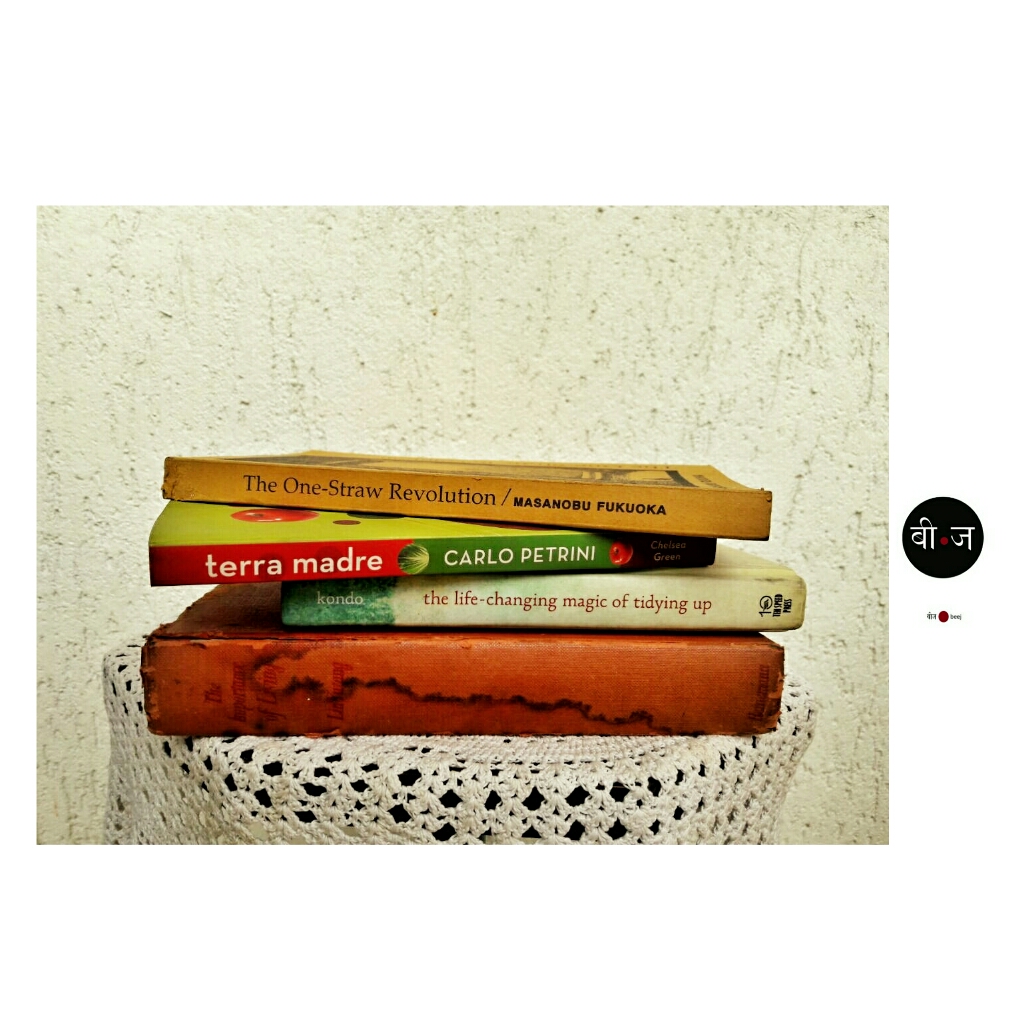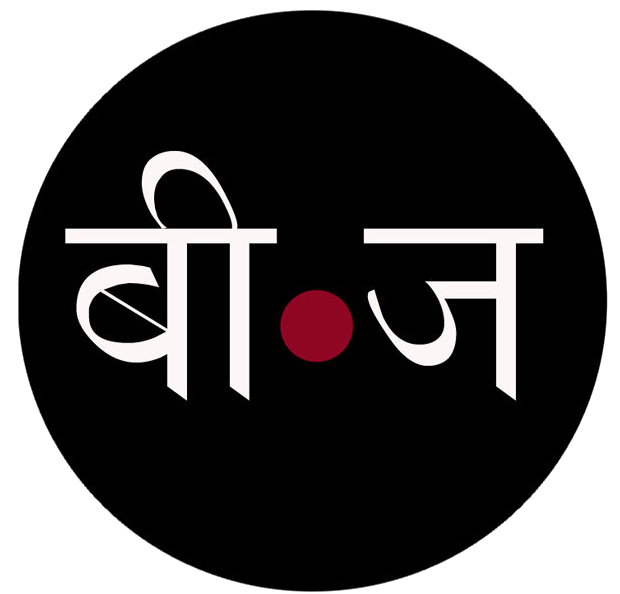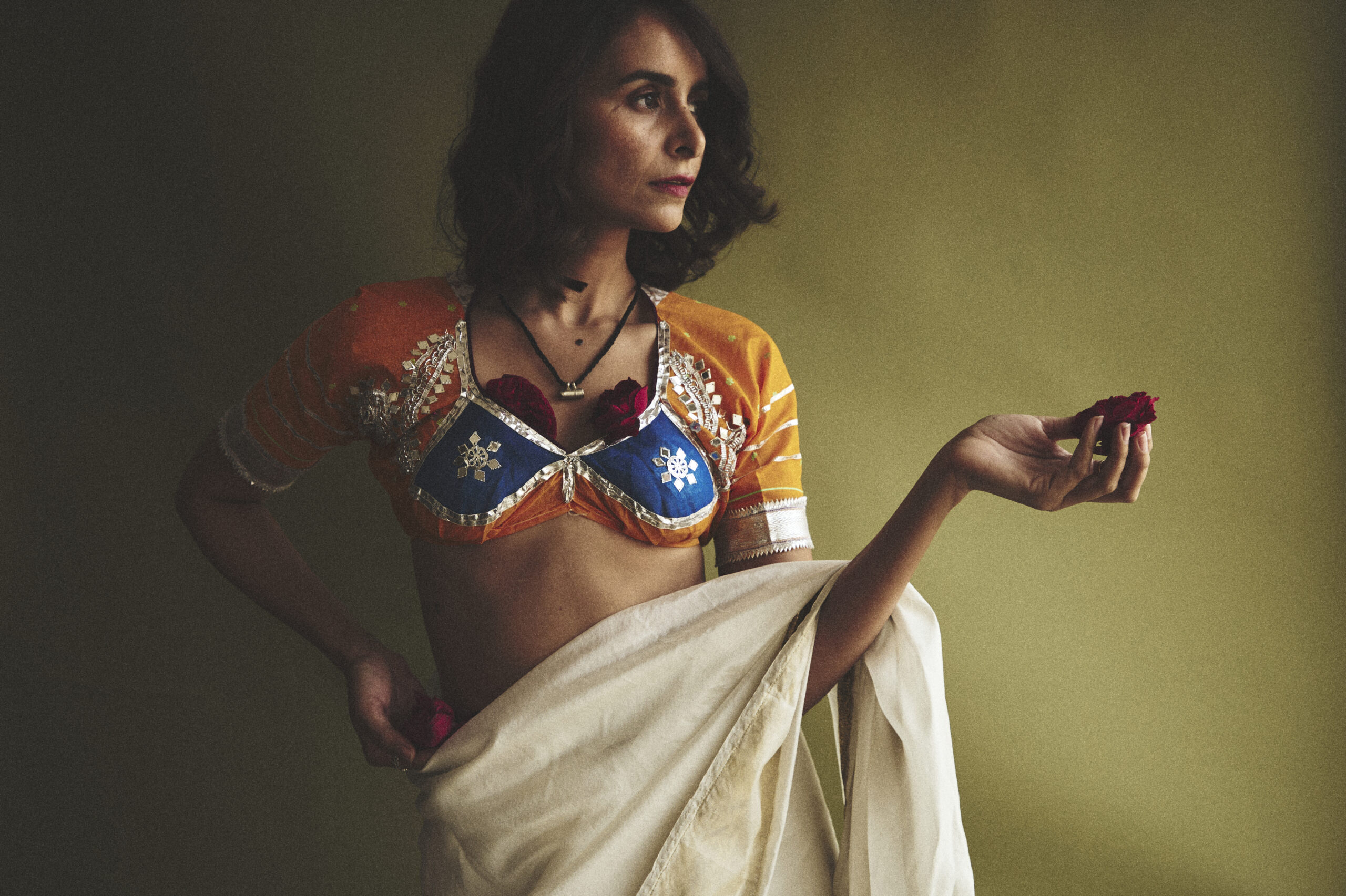Five books to start your journey


How do you decide that something is right for you?
You will never know. Unless you dive right in to it, head down, feet up.
Five books led inspired me to at least think about a simpler life. Being a hoarder and being trapped in a world of planned obsolesce and easy consumerism, it was easy to buy that dress and those bags and that matching shoes, and not enjoy any of it. Much like Smaug, snorting and wheezing over his gold; no joy and all humbug.
Like what the mother ship calls as ‘punishment clothes’ those impulse buys that you hate but have to wear. Just because you own it.
Here goes…
The One Straw Revolution by Masanobu Fukuoka
I was in Auroville researching a story on food on Pondicherry when I met Njal, a German, who was advocating organic cashew farming to the local villagers. He recommended this as the only book to read on organic farming, if I ever wanted to read one. Fukuoka’s tome is astonishing, even if it has a taut grimness in its pages. “Humanity knows nothing at all. There is no intrinsic value in anything, and every action is a futile meaningless, effort.” His disdain for commercial agriculture led him to devote his life to the do-nothing farming, following the way of nature. The way of the methodless-method is a zen-like revelation of just being. He sows the seed of Buddhism, philosophy and farming in one field — healing the land and purifying the spirit. A must read.
Last year, Shillong hosted Terra Madre, celebrating the slow food movement, launched by Carlo Petrini, a wiry Italian, around three decades ago. While we’ve been growing, preparing and eating food in India pretty much this way for centuries, it’s getting more difficult, especially for our generation, and that’s a scary thought. I picked up this book at The Slow Food University at Bra when it just started; it is a summary of his manifesto for the movement. It might feel a bit dated because there is so much information out there today, but it’s a good introduction to the process, though every now and then you shudder thinking how non-transparent the entire agricultural process is back home.
The life-changing magic of tidying up by Marie Kondo
The second Japanese in my list, I wing my way through Marie Kondo’s philosophy pretty much. Between thanking my socks (no) and getting sparks of joy from my books (yes), her theory is spot on — once you’re done with something in life, discard it, of course, with gratitude. But it’s the practical aspect that’s hard. There’s no room for sentimentality, moping or clinging on to in Konmarie’s universe of purging. She’s ruthless like a samurai. But it works. My closet hasn’t been cleaner. And discarding clutter does free your mind up magically. “Letting go is more important than adding.” Indeed.
The Importance of Living by Lin Yutang
Shifting to another part of the Orient, the next book on my list in Chinese philosopher Lin Yutang’s tome on life, first published in 1938. Many writers have spoken about mindfulness and the unity of the mind, body and spirit, but none with such joy as Yutang. After all, he has dedicated a complete chapter on the Importance of Loafing, The Art of Thinking, and even what type of person enjoys life. It’s particularly helpful if you’re feeling wretched. Just pick up any chapter and read. After all, in his own words, “If you can spend a perfectly useless afternoon in a perfectly useless manner, you have learned how to live.”
What I talk About When I Talk About Running By Haruki Murakami
My 5th and final book is again by one of my favourite writers, the third Japanese book on this list. You might wonder why should a book on a middle-aged man who one day decided to become a marathon runner features here. But What I Talk About… is about focus, discipline and endurance. Sometimes you got to hold out for that something better in your life. It’s hard, but it has to be done. “I’m not a human. I’m a piece of machinery. I don’t need to feel a thing. Just forge on ahead.” Amen.





